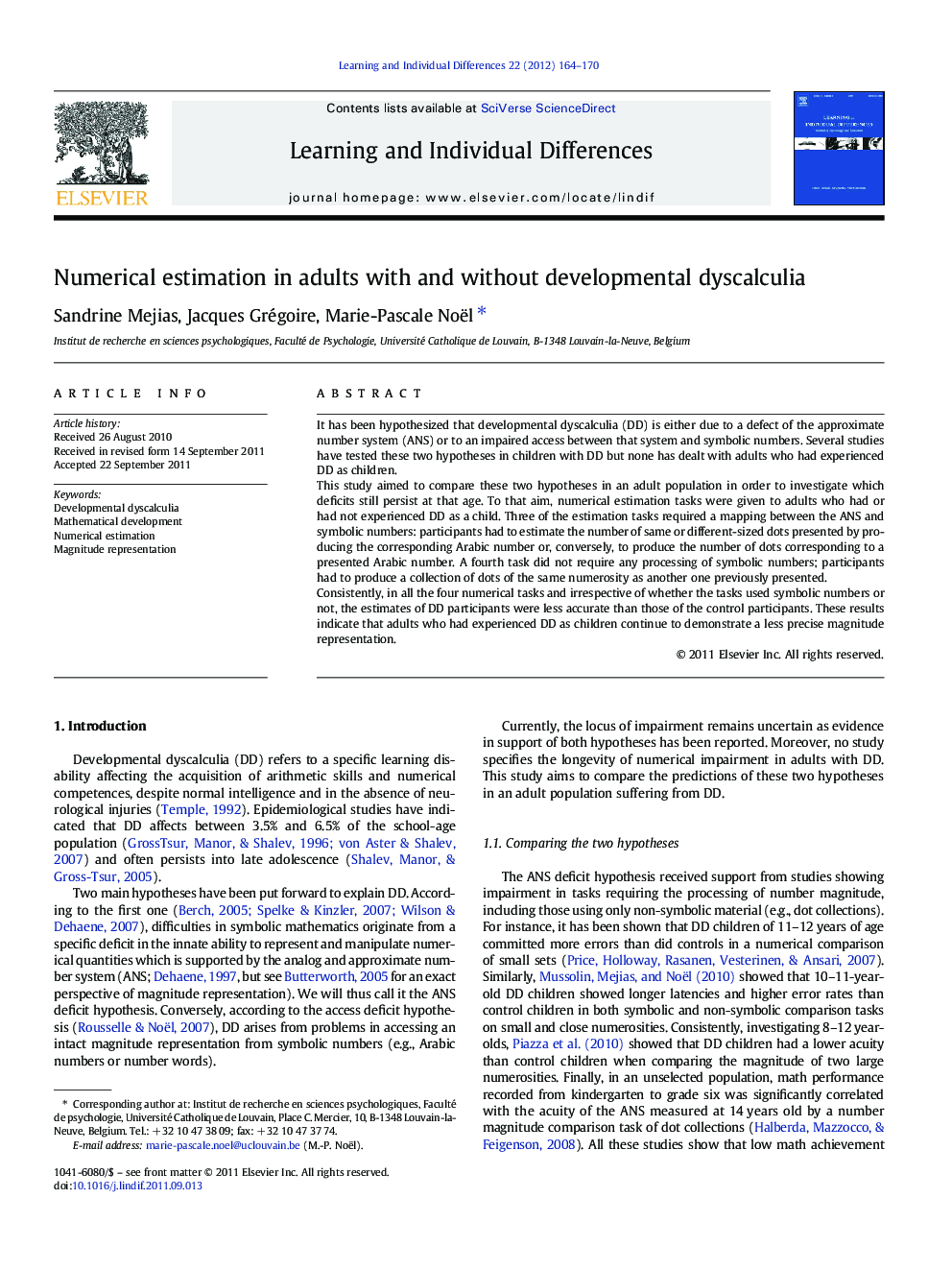| Article ID | Journal | Published Year | Pages | File Type |
|---|---|---|---|---|
| 365261 | Learning and Individual Differences | 2012 | 7 Pages |
It has been hypothesized that developmental dyscalculia (DD) is either due to a defect of the approximate number system (ANS) or to an impaired access between that system and symbolic numbers. Several studies have tested these two hypotheses in children with DD but none has dealt with adults who had experienced DD as children.This study aimed to compare these two hypotheses in an adult population in order to investigate which deficits still persist at that age. To that aim, numerical estimation tasks were given to adults who had or had not experienced DD as a child. Three of the estimation tasks required a mapping between the ANS and symbolic numbers: participants had to estimate the number of same or different-sized dots presented by producing the corresponding Arabic number or, conversely, to produce the number of dots corresponding to a presented Arabic number. A fourth task did not require any processing of symbolic numbers; participants had to produce a collection of dots of the same numerosity as another one previously presented.Consistently, in all the four numerical tasks and irrespective of whether the tasks used symbolic numbers or not, the estimates of DD participants were less accurate than those of the control participants. These results indicate that adults who had experienced DD as children continue to demonstrate a less precise magnitude representation.
